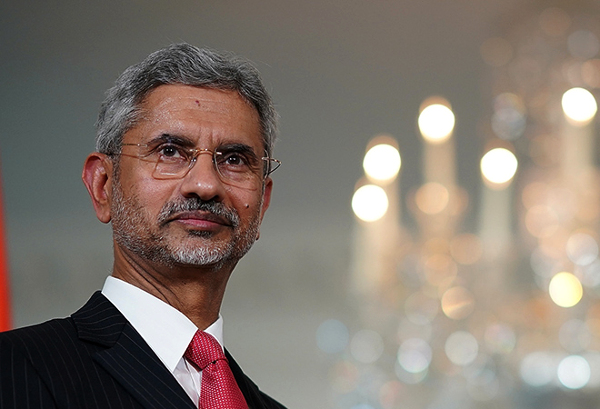NEW DELHI: India on Wednesday called for reforming the Non-Aligned Movement or NAM as long-held assumption and alignments rooted in the legacies of colonialism and the ideology of the Cold War are making way for new configurations and partnerships.
“The world today has moved on from what the NAM founding leaders faced in Bandung in 1955. The scales of global geo-political balance have shifted, and continue to do so, propelled by forces of globalisation and transformational technological progress. Long-held assumption and alignments rooted in the legacies of colonialism and the ideology of the Cold War are making way for new configurations and partnerships,” Foreign Minister S Jaishankar said at the Ministerial Meeting in Baku on Wednesday preceding the XVIIIth Summit of the Non-Aligned Movement.
“We are more interconnected and interdependent than ever before. Climate change, environmental degradation, terrorism, radicalisation, poverty, public health emergencies, humanitarian and natural calamities, cyber security threats, and the serious security implications of frontier technologies are just some of the challenges of this new world. These challenges can only be faced together, not when we are divided. It requires collaboration, not coercion. In short, effective multilateralism remains the only answer. And that requires all of us to be truly independent and think for ourselves. “
Pointing out that multilateralism is under strain, Jaishankar noted, “It is important that our Movement that represents two thirds of the world’s population – continues to work together and take the lead in building multilateral governance structures that are capable of meeting these challenges.”
“We must reform and revitalise the current arrangements and working methods of our Movement, to allow us to pursue a positive and forward-looking agenda. At the same time, we must guard against attempts to divide us and to misuse multilateral platforms to further narrow interests. In sum, a democratic, effective, flexible, credible, transparent and representative, multilateral order – “reformed multilateralism”, if you will – is a 21st century imperative,” he suggested.
He also pointed out that terrorism is the single biggest threat not only to international peace and security, but also to development. “No cause justifies the indiscriminate killing of innocents as a means of achieving a political goal. The growing linkages between terrorist groups and cross-border operations including terror financing networks, and the spread of hateful ideologies through modern communication technologies have left no country untouched by this scourge.”
The Minister called for boosting collective efforts for cooperation among Member States to confront the scourge of terrorism, including through exchange of information and best practices, preventing misuse of modern technologies, monitoring illicit financial flows and cooperating in investigation and judicial procedures.
Source: ET
Image Courtesy: OROFLINE
You may also like
-
IAF Aircraft Set Course For Exercise Eastern Bridge VII At Oman
-
India-us Working Together In Areas Like Critical Minerals, Supply Chains And Advanced Technologies: Shri Piyush Goyal
-
Defence Secretary to co-chair 5th India-Philippines Joint Defence Cooperation Committee meeting in Manila
-
2nd India-Japan Finance Dialogue held in Tokyo on 6th September, 2024
-
Prime Minister, Shri Narendra Modi welcomes Crown Prince of Abu Dhabi
